
The Role of Dried Fruits in Boosting the Immune System
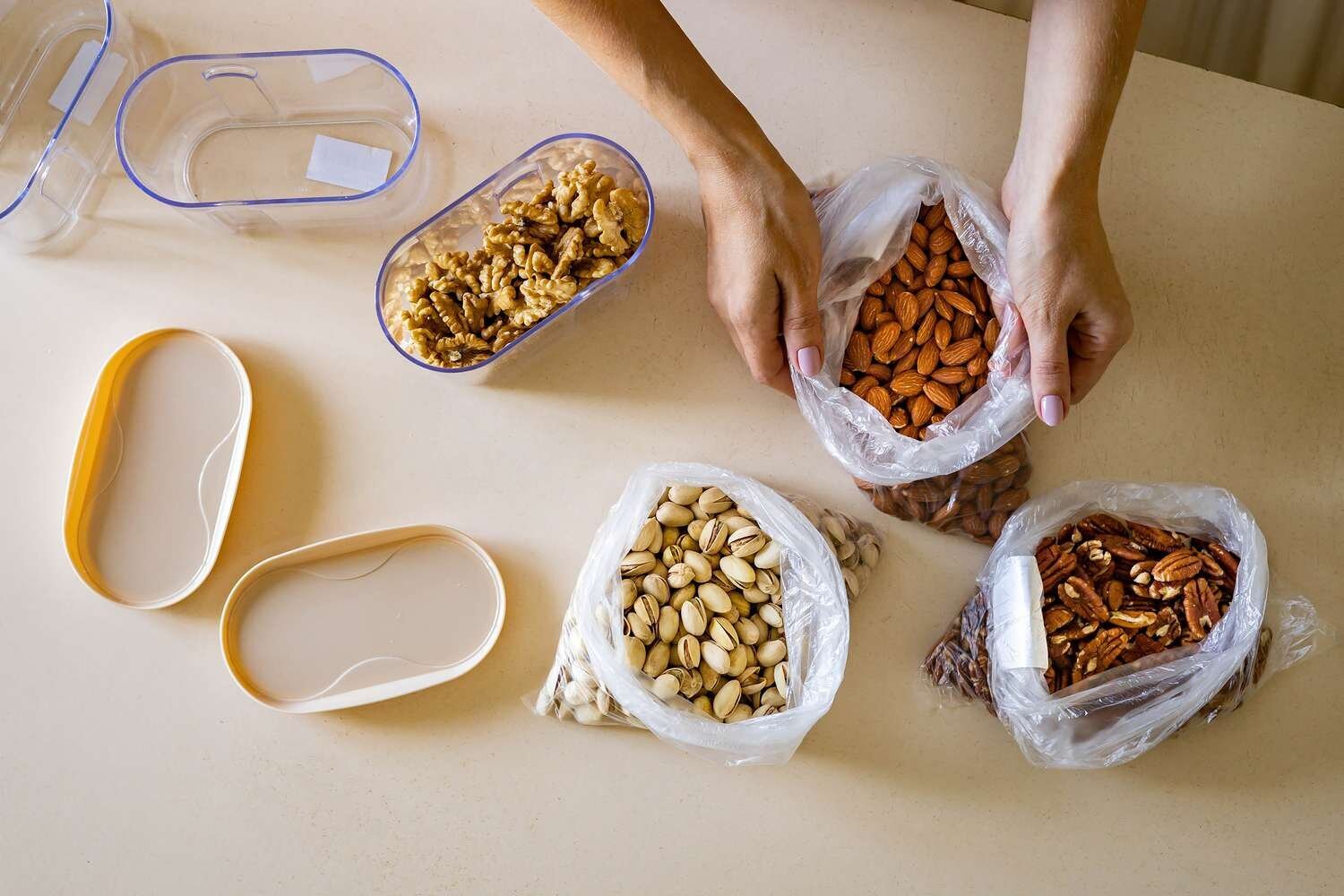
Proper Storage of Nuts and Dried Fruits
The Benefits of Spices for the Digestive System
Iranian cuisine is known for its aromatic and flavorful use of spices, many of which not only enhance the taste of dishes but also offer significant health benefits. Among these benefits, digestive health is one of the most important. Various Iranian spices are traditionally used to aid digestion, reduce bloating, and soothe gastrointestinal discomfort. Let’s explore some of these key spices and how they contribute to a healthy digestive system.
1. Cumin (Zireh)
Cumin is a staple spice in Iranian cooking, known for its warm, earthy flavor and digestive properties. Cumin seeds are often used in rice dishes, stews, and kebabs, making them a versatile ingredient in Persian cuisine.
Digestive Benefits:
- Stimulates digestive enzymes: Cumin promotes the production of digestive enzymes, which helps speed up digestion and improve the breakdown of food in the stomach.
- Reduces bloating: Cumin is often used to reduce bloating and gas, making it an excellent remedy for those suffering from indigestion or discomfort after meals.
- Improves nutrient absorption: By enhancing digestion, cumin also supports the body’s ability to absorb essential nutrients more effectively.
How to Use:
- Sprinkle cumin over rice dishes like Adas Polo (lentil rice) or add it to stews and soups for a warming, digestive-friendly boost.
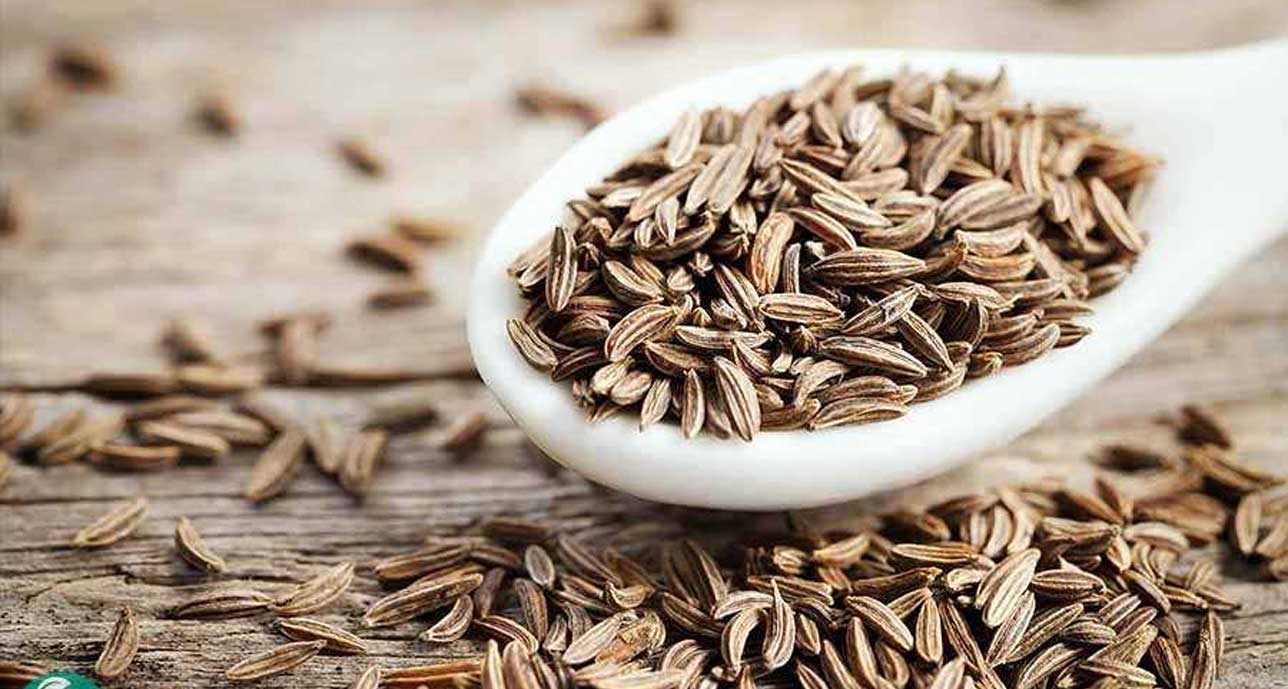
Persian Cumin (Zireh)
2. Turmeric (Zardchoobeh)
Turmeric is one of the most widely used spices in Iran, giving dishes a golden hue and a mildly bitter flavor. Beyond its culinary use, turmeric is prized for its anti-inflammatory and digestive benefits.
Digestive Benefits:
- Anti-inflammatory properties: Turmeric’s active compound, curcumin, has powerful anti-inflammatory effects that can soothe the digestive tract and reduce irritation in the stomach lining.
- Stimulates bile production: Turmeric helps stimulate the liver to produce bile, which is essential for digesting fats. This makes it beneficial for those who experience bloating or indigestion after eating fatty foods.
- Relieves indigestion: Studies suggest that turmeric can help relieve indigestion and symptoms like heartburn by supporting healthy stomach acid production and reducing inflammation.
How to Use:
- Use turmeric in dishes like Khoresht Gheymeh (split pea stew) or sprinkle it over roasted vegetables for a healthy and flavorful touch.

Persian Turmeric
3. Ginger (Zanjabil)
Ginger is a warming spice that is often used in Persian herbal teas and desserts. It has long been known for its potent digestive benefits and its ability to soothe the stomach.
Digestive Benefits:
- Reduces nausea: Ginger is commonly used to relieve nausea, including morning sickness, motion sickness, and nausea from indigestion.
- Speeds up digestion: Ginger helps food move through the digestive tract more efficiently, preventing bloating, gas, and discomfort.
- Anti-inflammatory effects: Ginger reduces inflammation in the gut, making it helpful for people suffering from irritable bowel syndrome (IBS) or other digestive issues.
How to Use:
- Add ginger to Persian herbal teas like Ginger Tea (Chai Zanjabil) or use it in sweet dishes like Sholeh Zard (saffron rice pudding) to enhance both flavor and digestion.
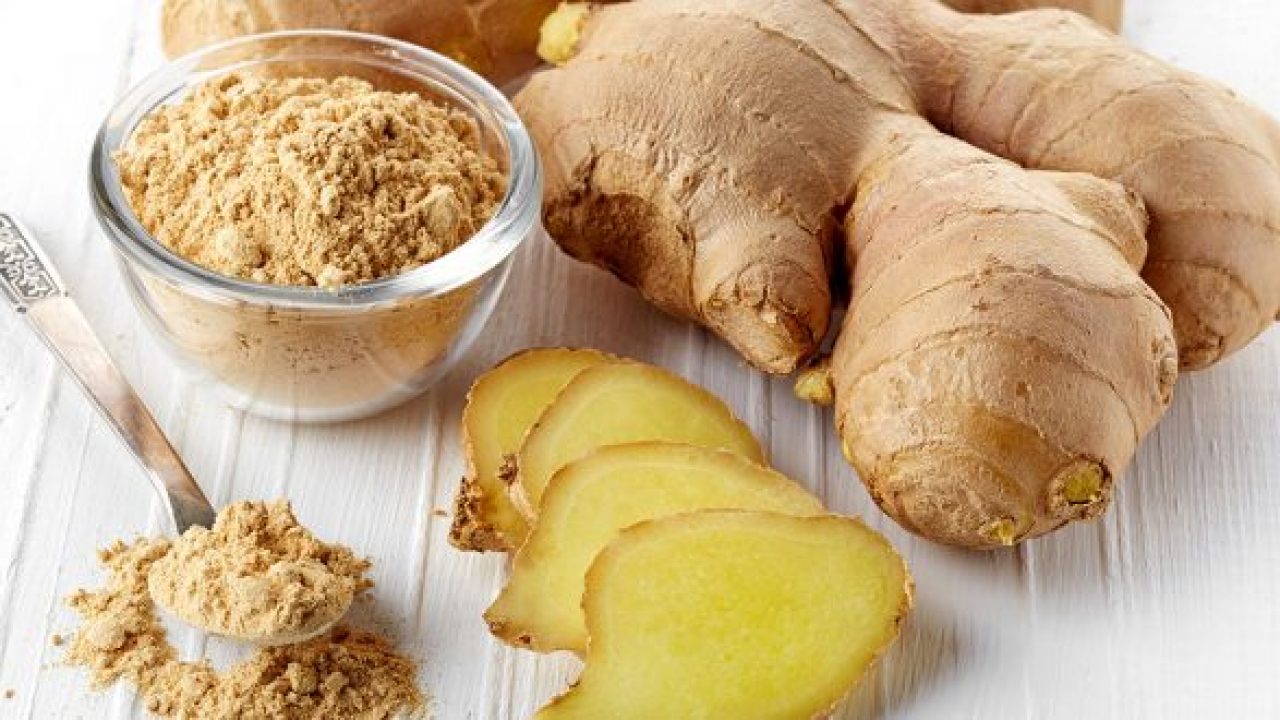
Persian Ginger (Zanjabil)
4. Cinnamon (Darchin)
Cinnamon is another widely used spice in Iranian cuisine, particularly in sweet dishes and desserts. However, it’s also known for its digestive benefits and ability to support gastrointestinal health.
Digestive Benefits:
- Regulates blood sugar: Cinnamon helps regulate blood sugar levels, which can prevent digestive discomfort caused by rapid spikes in insulin after meals.
- Soothes indigestion: Cinnamon has carminative properties, meaning it helps reduce gas and bloating while soothing the digestive tract.
- Fights bacterial infections: Cinnamon’s natural antimicrobial properties can help protect the digestive system from harmful bacteria, improving gut health.
How to Use:
- Sprinkle cinnamon on rice pudding (Sholeh Zard) or use it in Persian stews like Fesenjan for a warm, sweet, and digestion-friendly flavor.

Sholeh Zard
5. Fennel (Razianeh)
Fennel seeds are commonly used in Iranian cuisine and herbal remedies to aid digestion. With a mild, licorice-like flavor, fennel can be added to various dishes or brewed as a tea.
Digestive Benefits:
- Relieves bloating and gas: Fennel is known for its ability to reduce bloating, gas, and cramping by relaxing the muscles in the gastrointestinal tract.
- Supports digestion: Fennel seeds stimulate the secretion of digestive enzymes, making it easier to break down food and absorb nutrients.
- Soothes stomach pain: Fennel has natural antispasmodic properties, which can help alleviate stomach cramps and discomfort.
How to Use:
- Fennel seeds can be sprinkled on salads, added to herbal teas, or used as a seasoning in rice dishes like Sabzi Polo (herb rice).
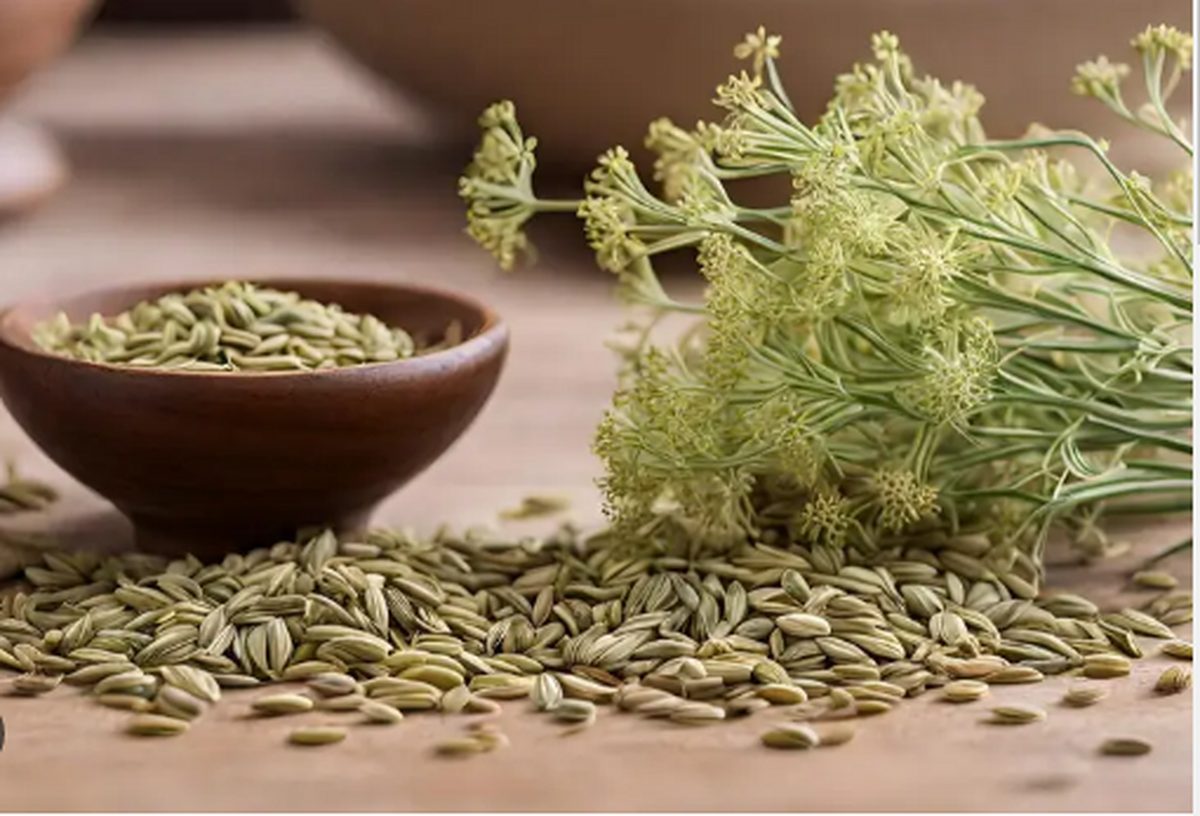
Fennel (Razianeh)
6. Cardamom (Hel)
Cardamom is a fragrant spice used in both sweet and savory Persian dishes, and it is known for its powerful digestive properties. Its unique flavor, often described as sweet and slightly spicy, makes it a favorite in Iranian cooking.
Digestive Benefits:
- Reduces acidity: Cardamom helps neutralize stomach acid, which can relieve symptoms of indigestion and heartburn.
- Stimulates appetite: If you’re experiencing a loss of appetite due to digestive discomfort, cardamom can help stimulate hunger by promoting the production of digestive juices.
- Combats bad breath: Cardamom is traditionally chewed after meals to freshen breath and promote good digestion.
How to Use:
- Add cardamom to Persian tea (Chai) or use it in desserts like Baklava or Shirini (Persian sweets) for both flavor and digestive relief.
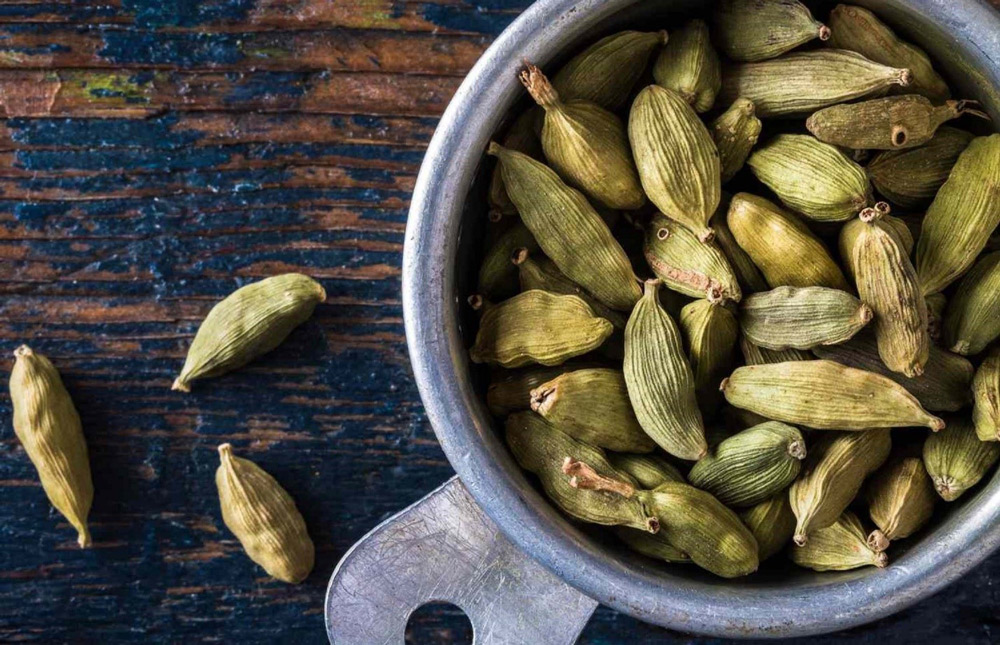
Persian Cardamom (Hel)
7. Mint (Na’na)
Mint is widely used in Iranian cuisine, often added fresh to salads or brewed into teas. It has long been valued for its cooling and soothing effects on the digestive system.
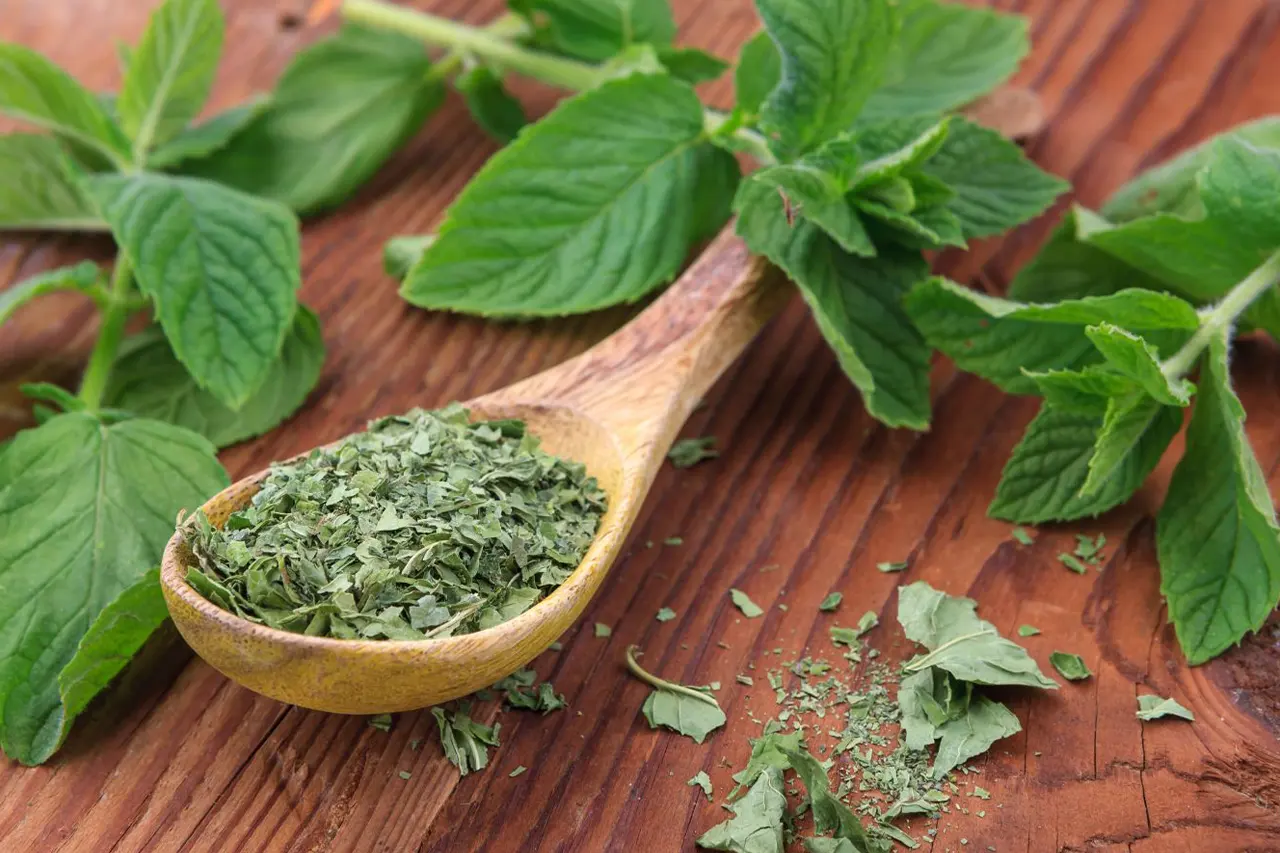
Mint (Na’na)
Digestive Benefits:
- Relieves indigestion: Mint helps relax the muscles of the digestive tract, making it easier for food to pass through the stomach and intestines. This can prevent bloating and discomfort after meals.
- Soothes stomach pain: Mint has natural antispasmodic properties, which can help alleviate cramps and stomach pain caused by digestive disorders.
- Improves bile flow: Mint promotes the flow of bile, helping the body digest fats more efficiently and preventing indigestion after consuming fatty foods.
How to Use:
- Brew mint tea (Chai Na’na) or use fresh mint in salads like Salad Shirazi for a refreshing and digestion-friendly touch.
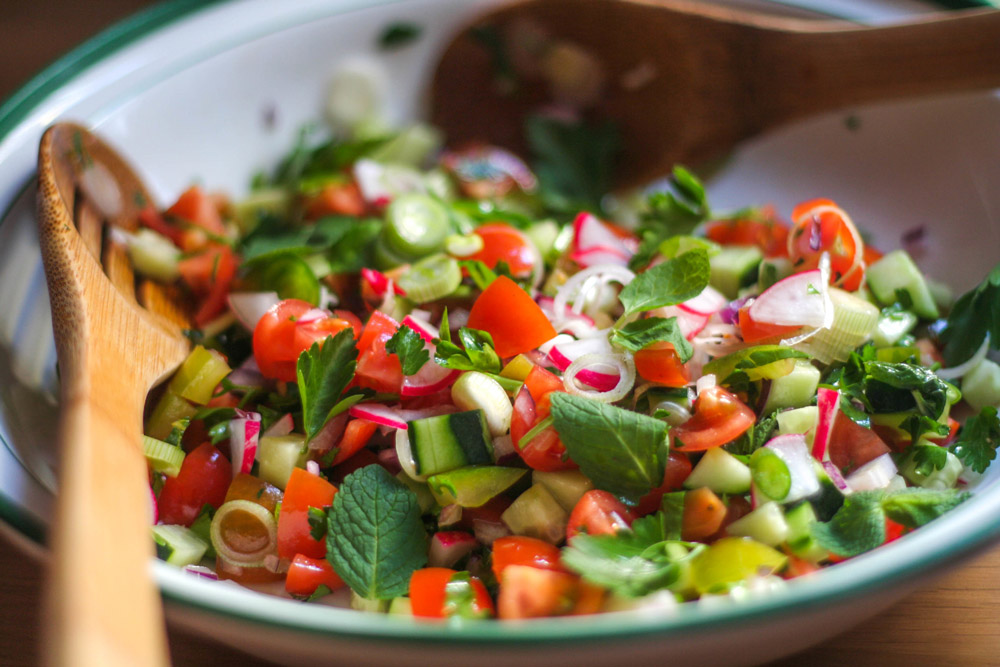
Salad Shirazi
8. Dried Lime (Limoo Amani)
Dried limes, or limoo amani, are a key ingredient in Iranian stews and soups, adding a tangy and slightly bitter flavor. These limes are not only valued for their taste but also for their digestive benefits.

Dried Limes (Limoo Amani)
Digestive Benefits:
- Rich in vitamin C: Dried limes are a good source of vitamin C, which supports immune function and helps the body absorb nutrients like iron more effectively.
- Aids in digestion: The tangy flavor of dried lime stimulates the production of digestive enzymes and bile, which aids in the breakdown of food.
- Alleviates bloating: Dried limes have natural detoxifying properties that can help reduce water retention and bloating, improving overall digestive comfort.
How to Use:
- Add dried limes to Persian stews like Khoresht Gheymeh or Khoresht Bademjan (eggplant stew) to enhance both the flavor and digestion.

Khoresh Gheymeh
Conclusion
Iranian spices offer a wealth of digestive benefits, making them not only flavorful but also functional in supporting gut health. From cumin and turmeric to fennel and cardamom, these spices have been used for centuries to improve digestion, relieve bloating, and promote overall gastrointestinal well-being. By incorporating these traditional Iranian spices into your meals and beverages, you can enjoy both their delicious flavors and their natural healing properties for the digestive system.







